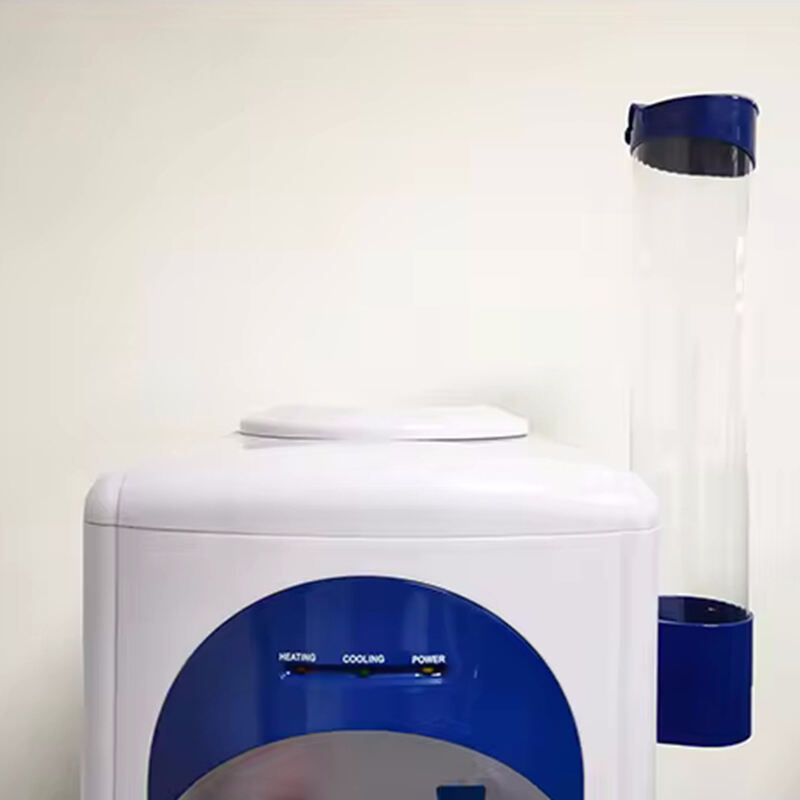Why It Is Necessary To Minimize Plastic Waste From Water DispensersThe handy and price-worth process of delivering consuming water on industrial webs or within academic institutions, in addition to well-liked options for public spots. On the other hand, as there is a growing demand for and reliance upon disposable water bottles, themselves adding to environmental plastication synthesising environment wastage on top of that by providing home delivery.... There are more than 38 billion plastic water bottles sold each year in the U. S., but only 12% of these get recycled One of the biggest environmental issues facing our generation is plastic waste, which can take hundreds of years to biodegrade. Even if you discard a plastic water bottle, it will still linger in landfills and oceans which WILL disturb the marine ecosystem. There is no doubt that accompanying the use of water dispensers also contributes to this problem, so it is necessary for us to further prevent plastic waste. Contribution to Carbon Emissions And Climate DestabilizationWater dispensers contribute carbon emissions and hence, climate destabilization as one of the major global warming. The amount of energy necessary to manufacture, deliver and chilling water from coolers; as well as the pumps that administer it in all shapes or sizes quantified collectively consume much electricity. The use of energy sources such as coal, natural gas and oil produces carbon emissions that create greenhouse gases in the atmosphere resulting to global warming and climate change. However, as it was noted earlier the water dispensers then increase demand for electricity, heat and fuel along with other processes that lead to higher carbon emissions. Sustainable Alternatives to Traditional Water DispensersA way of dealing with the devastation caused by water dispensing machines is to explore sustainable alternatives that break out from tradition. Some of these include businesses having access to refillable, filtered water from reusable bottles. Another approach to reduce the environmental impact is installing point-of-use water treatment systems, e.g. reverse osmosis, carbon filtration or ultraviolet disinfection instead of traditional bottles and dispensers formats. They also have the added benefit that if you wish to use them, biodegradable or compostable cups will reduce plastic waste much more than regular old disposable (yet still resistant) cup. This one move itself can also reduce the harm to your environment on using a water cooler by various alternate methods. Contaminants andFilteringThe water dispenser can be subject to contamination, which is a great danger in terms of the health standards for everyone who uses this type of device. Nonetheless, if there are water dispensers and they do not maintain regular cleaning practices; the same can potently have harmful microorganisms, bacteria or even viruses growing in them. Whole house water filtration systems (can be in a whole-house or block) are the most effective, since they remove all pollutants and disease-causing microorganisms contained therein. to avoid contamination it can help install some kind of filter on drinking fountains. A filtration system becomes a sewage treatment plant that removes impurities like particles, odors, and flavors mainly lead to clean & safe drinking water. Businesses and people may also take the opportunity to invest in state-of-the-art water purification tools like reverse osmosis, activated carbon or ultraviolet disinfection. Businesses and Eco-Friendly Water SolutionsWhile it may be up to manufacturers of water dispensers with commercial Pure Touch Bottles whether or not they practice environmentally friendly processes, there are some aspects that businesses can themselves pay attention in choosing what sterile disposable protective cuffs bottles which go along their own ethical beliefs. Business as a WholeThe way industry operates is based on demand from customers - if consumers show little interest or seem indifferent about how sustainable products need to reach the market, business owners might feel no incentive for making such changes. For example, they can purchase water purification systems and solve environmental problems by eliminating plastic bags. Implementing water filtration systems and reusable water bottles in companies, thus eliminating the use of plastic bottled waters. Environmentally conscious companies can also help to educate their customers and employees on the benefits of reducing plastic waste or energy conservation ] Encourage employees to bring a reusable water bottle (colored so is easy to identify) Use eco-friendly cups, containers and recycle bins in the workplace. It would be a shame to have consumerism make its way into this, as every manufacturer will forever create far more waste than good if we allow them. The takeaway for you here is that the environmental impact of having water dispenser in a place could potentially be an important issue by any standard. Oh, and what are some of the best things you can do here - besides reducing plastic waste from water dispensers themselves by implementing sustainable options as well as investing in filtration systems? But businesses can take the lead, by practicing and advocating for eco-friendly solutions, and educating their clientele/workforce on this matter to keep alive more decades of healthy natural systems. We can keep environment safe and make it sustainable by our collective efforts, for the posterity.


